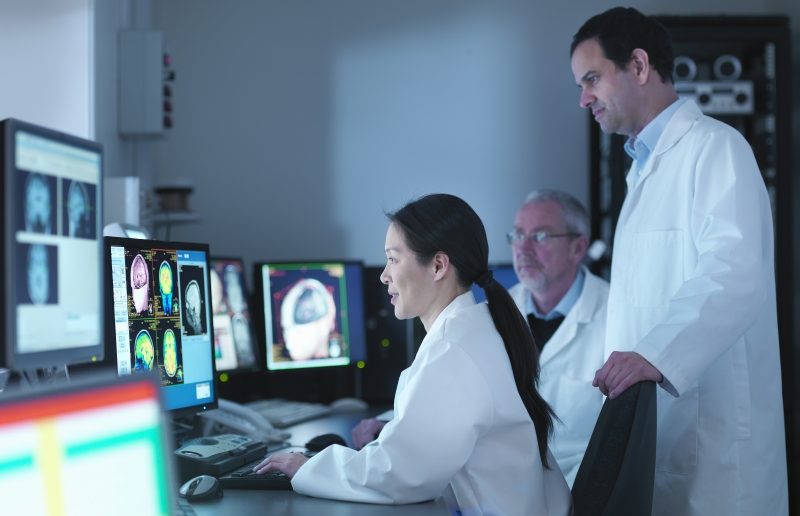As in most other sectors, health care is changing at lightning speed. Access to data makes it possible to speed up clinical trials, develop more personalized medication, make quicker and better diagnoses, improve the quality of patient care and save lives.
The pandemic has sped up digital transformation in every sector. As a result, more data is available than ever before, including in the health care sector. From discoveries to treatment, data offers enormous potential to improve patients' lives at every point along the continuum. Analyzing health data opens doors to developing more personalized medication and can improve the basis for operational decisions.
Below you will read six predictions about how AI and data analysis will improve health care and clinical research.
1. Data analysis will make hospitals and health care workers more efficient than ever
Investments in intelligent systems for hospitals make the tasks of health care workers much more efficient and enhance their job satisfaction. Growing automation and data workflows ensure that health care providers have more time to devote to patient care. Of course, it will also take a cultural change to make full use of the potential offered by technology. Managers must focus on training staff to work with data and the resulting insights. They must also draw on advanced analytics and invest in better data collection and analysis systems.
2. Synthetic data opens the door to new AI applications
The increasingly strict privacy legislation does not always make sharing patient data easy for health care organizations. And yet it is very important for researchers to be able to exchange exactly this kind of information. Imagine that a hospital in Belgium could ask data scientists in Canada to develop a personalized risk score for diabetic patients. To make possible this sort of cross-border collaboration among health care organizations, the rise of synthetic data is a real game changer.
With synthetic data, the characteristics of the original data set are preserved but the personally identifiable information disappears. AI applications can generate and validate data sets and use them in predictive models.
3. The health care sector will embrace the potential of cloud analytics
Using the cloud creates an ecosystem that links the various providers and research institutions and enables them to communicate. Connectivity and data integration will offer doctors a treasure trove of information to help them diagnose and prescribe treatments. Policy-makers can also benefit from this ecosystem and, thanks to more extensive data sets, can better plan for the future. Lastly, researchers can draw on an enormous data pool for lifesaving research.
4. AI will move from the lab to the patient
Leading health care institutions and other health organizations have already demonstrated AI's role in hospitals when we bring technology to the patient’s bedside. Multimodal AI can, for example, help detect signs and provide insight into multiple streams of parallel data, such as imaging, genomics and clinical files. Other health care providers will follow this trend in 2023 and use connected AI to improve clinical decision-making, build early warning systems for critical care environments, and monitor compliance with important clinical protocols.
5. Real-world evidence and genetic data speeds up clinical trials
Pharmaceutical companies can bring therapies to the market sooner using more technology and relying on real-world evidence. To make this possible, they are restructuring departments that used to work separately and bringing digitalization experts together to make clinical trials even more effective and efficient. The development of cell and gene therapies will be digitalized, increasing the trend toward more personalized medication.
6. AI becomes more effective thanks to adoption by scientists and clinical researchers
Clinical trial sponsors are increasingly implementing multimodal AI and multi-genomics, but only where these are rooted in clinical reality. This way, computerized calculations will identify new possibilities for medicines, generate better insights into patients, speed up day-to-day tasks, etc.
AI applications that cannot be explained to clinical researchers or scientists or that are not based on information spaces with good data quality are being replaced by more precise approaches due to the improving quality of algorithms and mathematical clusters and progress in the use of explainable AI.

